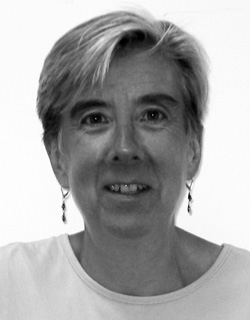After the Election: What’s Next?
 The 2016 election cycle has stirred heated rhetoric and passion, exposed sharp divides, and reopened painful wounds for many communities. One story in particular comes to my mind again and again as I think about where we go from here.
The 2016 election cycle has stirred heated rhetoric and passion, exposed sharp divides, and reopened painful wounds for many communities. One story in particular comes to my mind again and again as I think about where we go from here.
A friend of mine was catching up with her grandchild over dinner one day after school when she asked my friend, “Grandma, what are we going to do on Election Day? Are we going to hide?” For me, these words of a child are a glimpse into the toll this election season has taken on our individual and collective psyches. They present a spiritual challenge for us all.
As people of faith, what shall we say to this?
Fears of violent speech and action have troubled a great many of us throughout this long and difficult campaign season. We have heard renewed conversation about the meaning of civility, the state of our public life and our capacity to reach across lines of difference. It is important to know what we mean we call for civility in our public life. It can be easy to opt for a “watered-down civility” that simply sweeps difficult, uncomfortable conversation under the rug for the sake of “just getting along.”
In his book The Prophetic Imagination, theologian Walter Brueggeman points to importance of the prophets as those in society who could “name the pain rightly.” For only when pain is rightly and honestly named can it be rightly healed. A step toward real healing is diving deep into hearing and telling our stories. We are people of story, and if we dig deep, our faith can provide us with the humility and courage it takes to be truth-tellers and truth-hearers, as we hear and share stories that inform and empower our justice advocacy.
In a recent radio interview, U.S. poet laureate Natasha Trethewey made this observation about the current political process and the state of our common life:
“We are so deeply wounded right now that part of the story that we can begin to tell ourselves is that we are so fully open for light to enter us now because we are so deeply wounded. The stories are always different. The stories that we need to tell ourselves as individuals or as parts of groups often are in contention with each other. And yet, it has been my belief for a long time that, to tell a fuller version of American history, a fuller version of our stories as natives and immigrants of the United States, that all the stories have to be told — it’s an aggregate of our narratives. And that in the aggregate, in knowing more about the stories that are often erased or buried or forgotten, we tell a fuller version of American history that’s owned by all of us and, I think, can benefit all of us. There’s no benefit for us to not know certain stories or to not tell each other certain stories. There is not a single story, but the aggregate of our stories.
This work of reweaving the threads of our common life is at its heart, I believe, spiritual work. It will take us far beyond any one election cycle or political outcome. As people of faith, we bring much-needed gifts to this work. We can open up the power of transformative space made possible by God’s grace and a love that casts out all fear. Systematic theologian and author Willie James Jenning reminds us,
“…Christian faith places us inside the actions of a God who faces our dangers and yet refuses to yield to fear. God offers divine life at the site of threat and invites us to gather courage there, making it a place where God creates community.”
We have the gifts we need for the day.
Related News
United in Solidarity with Unions and Workers
“In the workplace, two factors greatly influence wages, benefits, and working conditions:...
Read MoreState of the (Dis)Union: Our Constitutional Crisis
In the 45 days since Inauguration Day, we have witnessed overwhelming changes in our federal...
Read MorePlanning for Earth Month: Resources for Congregations
April is Earth Month, and for congregations, it can be a great time to further discern how...
Read More


